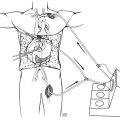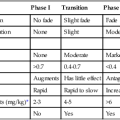
High blood pressure, medically known as hypertension, affects millions of people worldwide and poses significant health risks if left unmanaged. It is often called the “silent killer” because it can go unnoticed for years while quietly damaging our vital organs. Fortunately, with awareness, lifestyle modifications, and appropriate medical interventions, we can effectively control and reduce hypertension risks.
In this article, we will explore the causes, symptoms, complications, and various strategies to manage high blood pressure and improve overall cardiovascular health.
Understanding High Blood Pressure
High blood pressure, also known as hypertension, is a condition characterized by persistently elevated blood pressure against the arteries walls. This pressure is measured in two values: systolic pressure, which represents the force during a heartbeat, and diastolic pressure, the pressure when the heart is at rest between beats.
A standard blood pressure reading is approximately 120/80 mmHg. However, if these values consistently surpass 130/80 mmHg, it is diagnosed as hypertension.
Causes and Risk Factors
Several factors can contribute to the development of hypertension. These include unhealthy lifestyle choices, such as a poor diet, a sedentary lifestyle, tobacco, and excessive alcohol consumption. Genetics, age, and certain medical conditions, such as chronic kidney disease and diabetes, can also increase the risk of high blood pressure.
To mitigate these risks, making positive changes in daily habits and seeking medical advice can be vital steps.
Recognizing Symptoms
High blood pressure often develops silently, making it crucial to be aware of its potential signs. While hypertension rarely causes noticeable symptoms, some individuals may experience headaches, dizziness, shortness of breath, or nosebleeds. However, these symptoms are not specific to hypertension and may indicate other health issues. Regular blood pressure checks and medical consultations are essential for early detection and management.
Complications of Untreated Hypertension
High blood pressure can lead to severe health complications if left untreated or poorly controlled. Chronic hypertension puts significant strain on the heart, leading to an increased risk of heart attack, heart failure, and stroke. Moreover, it can damage the blood vessels, kidneys, and other organs, affecting their functionality. Additionally, uncontrolled hypertension is closely linked to vision problems, sexual dysfunction, and cognitive impairment.
Effective Management Strategies
Lifestyle Modifications
Adopting a healthy lifestyle is crucial for managing high blood pressure. Regular physical activity, such as walking, jogging, or swimming, can help improve cardiovascular fitness and reduce blood pressure. A balanced diet, rich in fruits, vegetables, whole grains, and lean proteins, can promote weight loss and lower blood pressure. Reducing sodium intake and avoiding processed foods can also be beneficial.
Treatment Options
For some individuals, lifestyle changes alone may not be enough to control hypertension. In such cases, medications can be crucial in managing blood pressure. One such medication is Cozaar (generic name: losartan), which belongs to the angiotensin receptor blockers (ARBs) class. It works by relaxing blood vessels, thereby reducing blood pressure. If your healthcare provider prescribes Cozaar, be sure to discuss the potential benefits of the medication for your condition.
Additionally, you may want to inquire about the Cozaar savings offer, which could help you save on your prescription costs and make the medication more affordable. Remember to follow your doctor’s advice and take the medicine as prescribed to manage your hypertension effectively.
Regular Monitoring
Frequent monitoring of blood pressure is essential to assess the effectiveness of lifestyle changes and medications. Home blood pressure monitors are readily available and can help individuals keep track of their readings. Doing so can detect any fluctuations or abnormalities promptly and seek medical advice if necessary.
Stress Management
Chronic stress can elevate blood pressure, so implementing stress-reducing techniques is essential. Engaging in activities like meditation, yoga, or mindfulness practices can promote relaxation and reduce hypertension risks.
Limiting Alcohol and Tobacco
Excessive alcohol consumption and tobacco use can significantly impact blood pressure. Reducing or eliminating these habits can positively affect overall health and lower the risk of hypertension-related complications.
Conclusion
High blood pressure is a common health issue with severe consequences if left unaddressed. By understanding its causes, recognizing potential symptoms, and implementing effective management strategies, individuals can take control of their hypertension and improve their cardiovascular health. Lifestyle modifications, including regular exercise, a balanced diet, stress management, and avoiding harmful habits, are essential for hypertension management and prevention.




